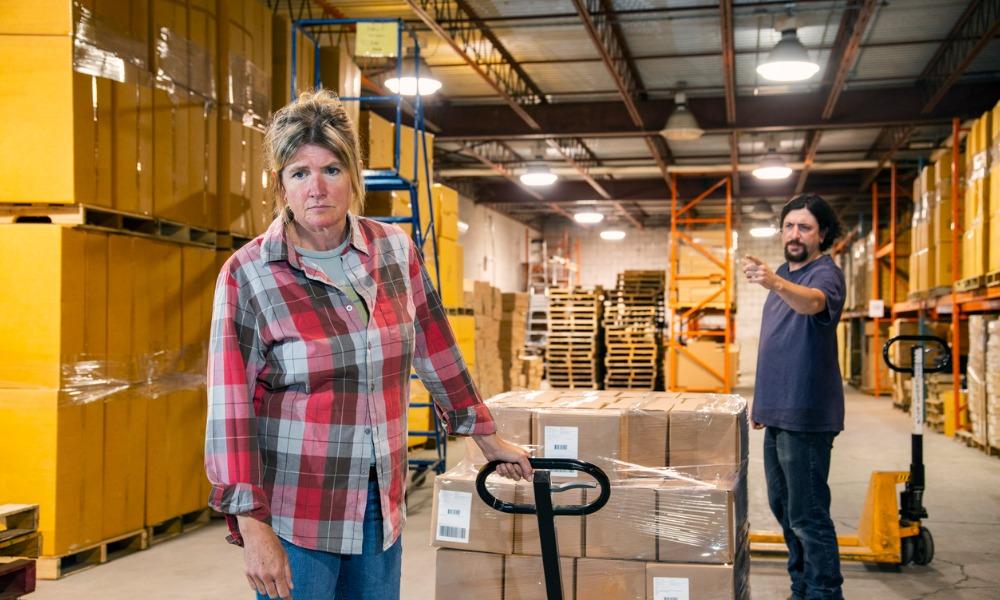
Employers urged to take 'prompt' action to address problem

One in five people across the world have experienced some form of violence and harassment at work at some point in their lives, according to a new report.
A survey by global charity Lloyd’s Register Foundation found that 20.9% of over 125,000 people from 121 countries experienced harassment and violence in the workplace.
Among those who experienced it, 58.5% said they experienced it more than once, while 27.5% said they suffered from multiple forms of violence and harassment at work.
Psychological form violence and harassment was the most frequently reported type (16.5%), according to the report, followed by physical (7.4%) and sexual (5.5%).
Recently, the International Labour Organisation released a guide for employers on how to address violence and harassment in the workplace.
By gender, the report found that men (21.9%) are slightly more likely than women (19.8%) to report experiencing violence and harassment at work.
"Notably, much of the existing research has found that violence and harassment is an issue that disproportionately affects working women — a claim which does not appear to be supported by these global-level results," the report said. "However, analysis later in this report — which considers how an individual's background or personal characteristics is related to experiences with violence and harassment at work — will show that women are often are at greater risk."
The report — Safe at Work? Global experiences of violence and harassment — also found that women with a tertiary level of education were more likely to have experienced violence and harassment (29.3%) and told someone about their experience (71.9%), compared to women with primary or secondary level education.
Foreign-born women (30.2%) are also reported to have a greater experience of violence and harassment in the workplace than native-born counterparts (21.5%), the survey revealed.
In both situations, the effects of education of or birthplace were not reported in men.
By nation, Australia and New Zealand reported the highest levels of experience, where nearly one in two people (47.9%) said they suffered violence and harassment in the workplace.
North America posted a 41.4% rate, according to the report, but it had the "clearest difference" between men and women with a 13.3 percentage point gap (48% for women and 35% for men).
"At the other end of the scale, Central and Southeastern Asian regions report to the poll a much lower percentage of experience, with Central Asia having an overall experience of 4.6%," the report revealed.
The findings were described as "daunting" by Sarah Cumbers, Director of Evidence and Insight at Lloyd's Register Foundation.
"The situation looks even worse when we delve deeper into the data to look at the experiences of some more vulnerable groups – such as migrant women and those who have experienced discrimination," Cumbers said.
The survey results confirmed that certain groups were more affected than others by workplace violence and harassment, more particularly those who have been "historically disadvantaged."
Almost four in 10 (38.4%) of those who experienced any of the forms of discrimination on the grounds noted above said they had also experienced violence and harassment at work, compared to 16.2% for those who had not experienced discrimination.
The findings are pushing for "direct and impactful" action to address violence and harassment in the workplace, such as providing clear procedures and taking transparent investigations.
"Employees and stakeholders should therefore ensure that prompt action is taken whenever violence and harassment is reported," the report said.
Reports of violence and harassment in the workplace should also be investigated transparently with visible actions taken, according to Lloyds.
"Our research has found a majority of those who have experienced violence and harassment at work will experience it again, emphasising the importance of early intervention and not dismissing incidents as 'one-offs,'" Cumbers said. "We hope our report will encourage lawmakers around the world to strengthen legal frameworks, and companies to re-evaluate their culture, policies and processes."